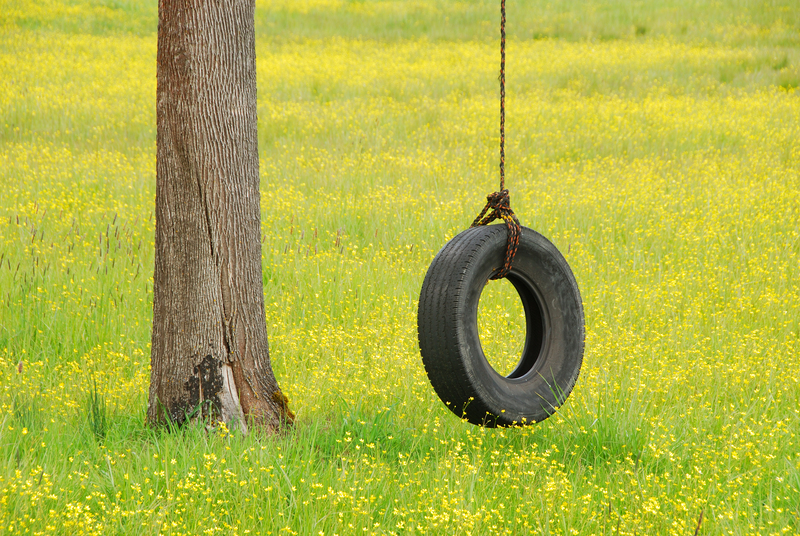Infuse Environmental Awareness with School-Based Recycling Projects
There is no denying the urgent need to foster environmental awareness in the minds of future generations. With climate change, resource depletion, and pollution threatening our planet, instilling eco-conscious values starts at a young age. That's where school-based recycling projects come into play. Such initiatives not only teach students about sustainable practices but also empower them to become eco-advocates within their communities.

Why School-Based Recycling Projects Matter
Schools are microcosms of our societies, making them ideal places to launch environmental education initiatives. By integrating recycling projects into the curriculum and everyday school life, educators can facilitate lasting behavioral changes and spark a lifelong commitment to environmental protection among students.
Key Benefits of Recycling Programs in Schools
- Cultivate Environmental Responsibility: Students become aware of waste management issues and learn how personal choices impact the environment.
- Promote Teamwork and Leadership: School recycling projects encourage cooperation and empower students to take initiative.
- Reduce School Waste: Proper waste segregation significantly cuts down on landfill-bound garbage and promotes resource conservation.
- Compliance with Regulations: Many regions have recycling mandates, and school participation ensures compliance.
- Community Engagement: Students share their knowledge with families, amplifying the program's effects outside the classroom.
Planning a School Recycling Project
Launching an effective school-based recycling initiative requires careful planning, collaboration, and consistent effort. Here's how to get started:
1. Assess the School's Current Waste Management Practices
- Conduct a waste audit to identify the volume and types of waste produced.
- Engage teachers, janitors, and cafeteria staff for a comprehensive assessment.
- Determine which recyclable materials (paper, plastics, metals, electronics) are most prevalent.
2. Set Clear Objectives and Goals
- Set measurable goals, such as reducing landfill waste by 30% in one academic year.
- Establish regular tracking and reporting benchmarks to gauge progress.
- Link goals to educational outcomes, e.g., lessons on resource cycles or the science of recycling.
3. Assemble a Green Team
- Form a committee of motivated students, teachers, and support staff to spearhead the project.
- Assign clear roles such as project coordinator, communication officer, and data manager.
- Involve parents and local community members to extend your reach and resources.
4. Choose the Right Recycling Bins and Collection Methods
- Provide clearly labeled bins for different materials: paper, plastic, metal, glass, and organic waste.
- Strategically place bins in high-traffic areas such as classrooms, cafeterias, and corridors.
- Ensure collection logistics are efficient and bins are emptied regularly.
5. Collaborate with Local Recycling Partners
- Partner with municipal waste authorities, recycling centers, or private recyclers for waste pickup.
- Invite guest speakers or arrange field trips to recycling facilities for real-world learning.
- Explore opportunities for fundraising through recycling (e.g., collecting bottles for deposit refunds).
Top School-Based Recycling Project Ideas
The best school recycling programs are engaging, practical, and educational. Here are some creative ways to infuse environmental awareness through school-based recycling activities:
1. Recycled Art Competitions
- Encourage creativity by challenging students to make art from used plastic bottles, cans, or old newspapers.
- Host exhibitions to showcase entries and discuss the environmental impacts of waste.
- Offer prizes for the most innovative or impactful pieces.
2. Classroom Composting Projects
- Set up a compost bin in the school garden or science lab.
- Teach about the science of decomposition, soil health, and food waste reduction.
- Use finished compost for school gardens, closing the loop on food waste.
3. E-Waste Collection Drives
- Organize regular events where families and community members can drop off old electronics for safe recycling.
- Educate about the hazards of improper e-waste disposal and the benefits of recovering valuable materials.
4. Upcycling Workshops
- Host hands-on workshops teaching students to repurpose jars, T-shirts, or scrap paper into useful items.
- Emphasize the importance of extending product life cycles to minimize waste.
5. Recycling Awareness Campaigns
- Create student-led educational campaigns with posters, school announcements, and newsletters.
- Highlight important facts about recycling rates, litter reduction, and resource conservation.
- Celebrate Earth Day with themed events and recycling challenges.
Integrating Environmental Education Across the Curriculum
A holistic approach integrates sustainability themes into various subjects, not just science. Here's how educators can underline recycling and environmental consciousness throughout the school experience:
- Language Arts: Write essays, poems, or persuasive speeches on recycling and its global impact.
- Mathematics: Analyze data from school recycling rates, graph results, or calculate environmental savings.
- Social Studies: Investigate historical and cultural approaches to waste management around the world.
- Art: Create posters or recycled sculptures promoting environmental messages.
- Technology: Design apps or websites to track recycling efforts or share eco-tips.
Such cross-curricular projects help students see the interconnectedness of human activities and their environmental impacts, deepening their understanding of global challenges and solutions.
Sustaining and Expanding Recycling Projects
Maintaining momentum is crucial for the long-term success of school environmental initiatives. Here's how to keep projects impactful and sustainable:
Celebrate Achievements and Share Successes
- Publish regular updates in the school newsletter or website.
- Recognize top student recyclers or classes with awards and certificates.
- Share photos and statistics with local media to inspire other schools.
Evaluate and Evolve the Program
- Solicit feedback from students, staff, and parents to identify improvements.
- Expand to include new recycling streams, like textiles or batteries, as resources become available.
- Work towards national or international eco-certifications (e.g., Eco-Schools, Green Flag status).
Extend Learning Beyond Schools
- Encourage students to start recycling programs at home and in their communities.
- Partner with local businesses or NGOs for joint environmental projects.
- Promote inter-school competitions to inspire friendly rivalry and higher achievement.
Overcoming Common Challenges in School Recycling Initiatives
Despite the best intentions, many school-based environmental projects face obstacles. Being prepared for these can greatly enhance the likelihood of success:
- Contamination of Recycling Bins: Offer regular training on correct sorting to avoid rejected batches.
- Lack of Engagement: Keep initiatives fun with games, quizzes, competitions, and visible rewards.
- Resource Constraints: Seek grants, sponsorships, or community support to cover costs for bins, signage, or workshops.
- Limited Staff Time: Delegate responsibilities to student green teams, fostering leadership and shared ownership.
- Insufficient Infrastructure: Work with local authorities to ensure regular and reliable collection and processing of recyclables.
The Lasting Impact of Recycling Projects on Students
Participating in school environmental programs has far-reaching effects beyond the classroom. Students develop a stronger sense of agency, self-confidence, and social responsibility. These experiences foster:
- Critical Thinking: Evaluating waste patterns and designing solutions builds analytical skills.
- Leadership: Taking charge of green teams or campaign events nurtures organizational and motivational abilities.
- Environmental Stewardship: Developing eco-friendly habits leads many to pursue careers or hobbies in environmental science or activism.
- Global Citizenship: Understanding interconnected challenges like waste, pollution, and sustainability prepares students for participation in a global community.

Conclusion: Building a Greener Future, One School at a Time
To infuse environmental awareness through school-based recycling projects is to plant the seeds of a more sustainable, conscientious world. These practical and educational initiatives provide students with invaluable skills, foster community spirit, and address pressing ecological concerns right where future leaders are being shaped.
By integrating recycling programs into school culture, educators empower students to make informed choices--at school, at home, and wherever they go. The ripple effect of these positive actions can extend across generations, inspiring systemic change and proving that even small efforts, when amplified, can produce outstanding, world-changing results.
Start Your Journey Today
Are you ready to encourage environmental consciousness in your school community? Begin with a recycling project--educate, act, and watch a culture of sustainability grow!